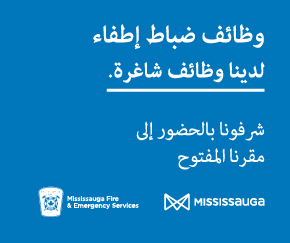اخبار العرب-كندا 24: الخميس 8 فبراير 2024 02:03 مساءً
It'll be a pivotal decision either way.
Indigenous people across the country are bracing for a potentially landmark opinion from the Supreme Court of Canada, which will decide Friday whether the Trudeau government's Indigenous child welfare law is constitutional.
Indigenous leaders hope Canada's top court, after deliberating for more than a year, will uphold Indigenous Peoples' authority over their kids, but they're aware the court could reject the law, dealing a devastating blow to their quest for self-determination.
"This is a very key moment," said Natan Obed, president of the Inuit Tapiriit Kanatami national advocacy organization.
He added that this piece of legislation affects the lives of First Nations, Inuit and Métis children in a way that dwarfs all others.
Bill C-92, An Act Respecting First Nations, Métis and Inuit Children Youth and Families, became law in 2019. It affirms Indigenous nations have jurisdiction over child and family services and outlines national minimum standards of care.
The Quebec government opposed the law on jurisdictional grounds, arguing Ottawa overstepped its constitutional authority, infringed provincial jurisdiction and effectively recognized Indigenous Peoples as a third order of government.
The Quebec Court of Appeal found the statute constitutional except for two clauses that say Indigenous laws have the force of federal law and will prevail over conflicting provincial laws. Ottawa appealed to the Supreme Court.
Obed, who advocates for 65,000 Inuit in Canada, said he is disappointed and troubled by Quebec's bid to annul the law.
"What we see here are colonial echoes of nation-state policies that don't uphold our existing rights," he said.
"I hope the Supreme Court sees these things for what they are, and very clearly articulates the rights that we have to take care of our children."
The high court is expected to weigh in on the nature of Indigenous self-government, Ottawa's power to recognize self-government rights by legislation and whether Indigenous laws can supersede provincial ones, if at all.
Story continues
"It has real potential to be an extremely important case," said Maggie Wente, a partner at OKT Law and member of Serpent River First Nation in Ontario.
"You can see by the long list of intervenors who appeared that lots of nations in Canada had very strong feelings."
Whose law prevails?
Wente, like others interviewed for this story, is troubled because the dispute is between two colonial governments, with Indigenous kids caught in the middle and Indigenous nations relegated to intervenor status.
David Chartrand, president of the Manitoba Métis Federation, said he hopes the court wades cautiously into the area of self-government but he added that the continued suppression of Indigenous autonomy may spark more volatile fights on the ground.
"We're not backing away, no matter what," said Chartand.
"Governments stole our children, robbed our babies, and there's no way in hell we're going to let that ever happen to us again. We would rather pick up our guns again and stand up to defend our people."
Chartrand said the abstract legal dispute over paramountcy — whose laws prevail — will have serious practical implications.
David Chartrand, president of the Manitoba Métis Federation, speaks to media after the completion of the provincial throne speech at the Manitoba Legislative Building in Winnipeg on Nov. 21, 2023. (Aaron Vincent Elkaim/The Canadian Press)
He tells the story of a non-Métis foster family that sought permanent adoption of a Métis child. The federation rejects permanent adoption as a legal tool, he said, but the family went to court under provincial law, and won.
"We lost that child," Chartrand said.
"That's why we need our own laws."
While the Supreme Court decision could range from the total acceptance or rejection of the law to the upholding or varying of the appeal court's opinion, Chartrand pledged to continue asserting jurisdiction in every case.
'Lying if I said I wasn't concerned'
Mary Teegee, executive director at Carrier Sekani Family Services in British Columbia, agrees.
"This isn't something that we're just going to let die. We definitely have to keep fighting," said Teegee.
"Whatever we have to do, we're going to do it."
The length of time the court took to craft an opinion has made Cindy Blackstock uneasy. She is the executive director of the First Nations Child and Family Caring Society, a national organization that works to promote the rights of Indigenous children.
"I'd be lying if I said I wasn't concerned," said Blackstock.
She worries about the implications for nations that have already enacted child welfare laws and signed deals to implement them.
Cindy Blackstock, executive director of the First Nations Child and Family Caring Society, is recognized by the Speaker of the House of Commons in Ottawa in December 2022. (Justin Tang/The Canadian Press)
She hopes the court recalls the state's history of paternalism and racism, which harmed and abused Indigenous children through residential schools, the Sixties Scoop and the modern child welfare system.
"This law is not about the adults; this law is about the children, and Canada and the provinces together with their colonial processes have harmed these children beyond belief," said Blackstock.
"This is one chance to give a message of hope for these kids. I really hope the court goes the extra mile, because this is about children."
Wente said the government still holds the pen at the end of the day, and can amend the law based on the top court's guidance.
تم ادراج الخبر والعهده على المصدر، الرجاء الكتابة الينا لاي توضبح - برجاء اخبارنا بريديا عن خروقات لحقوق النشر للغير






